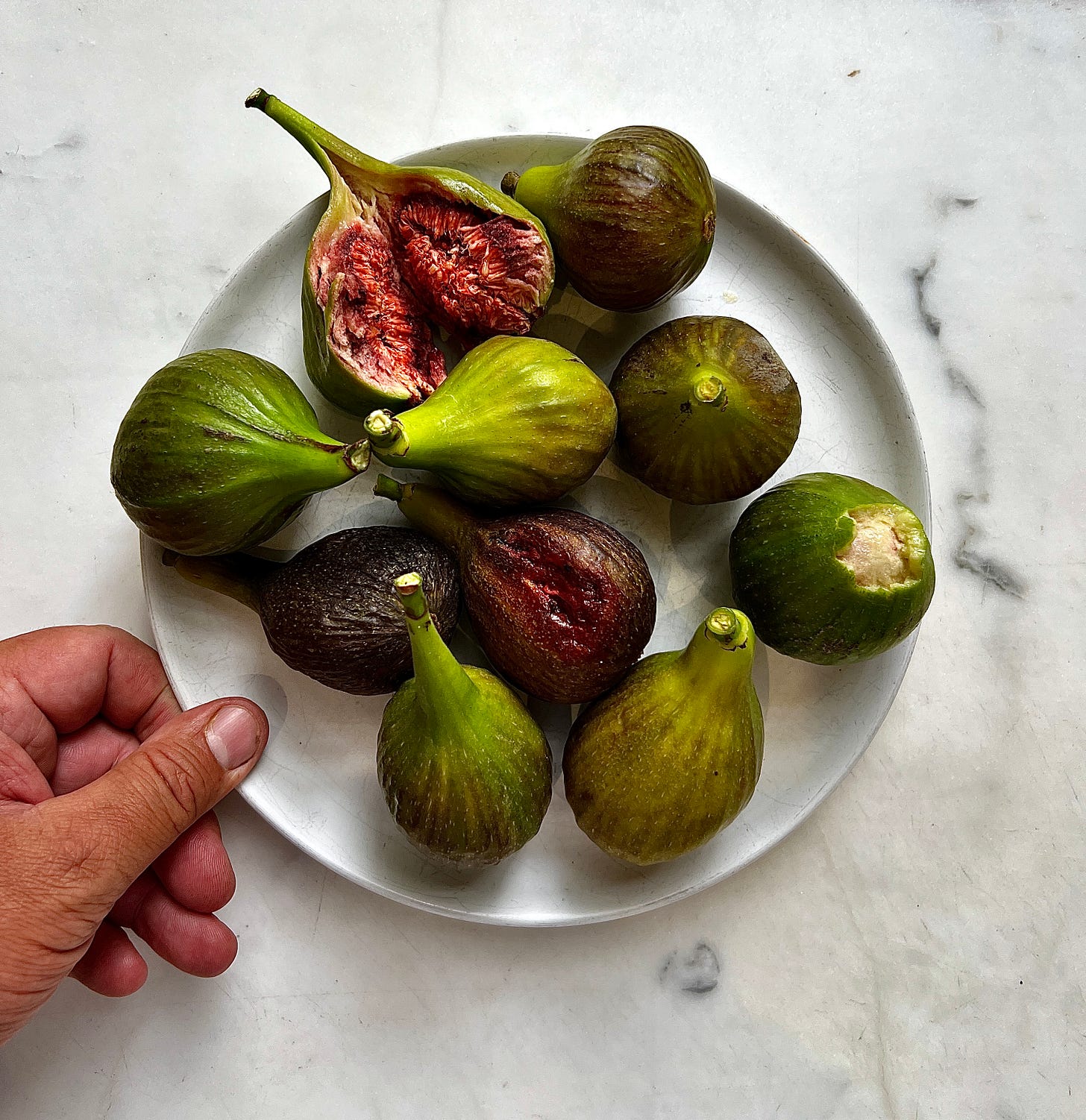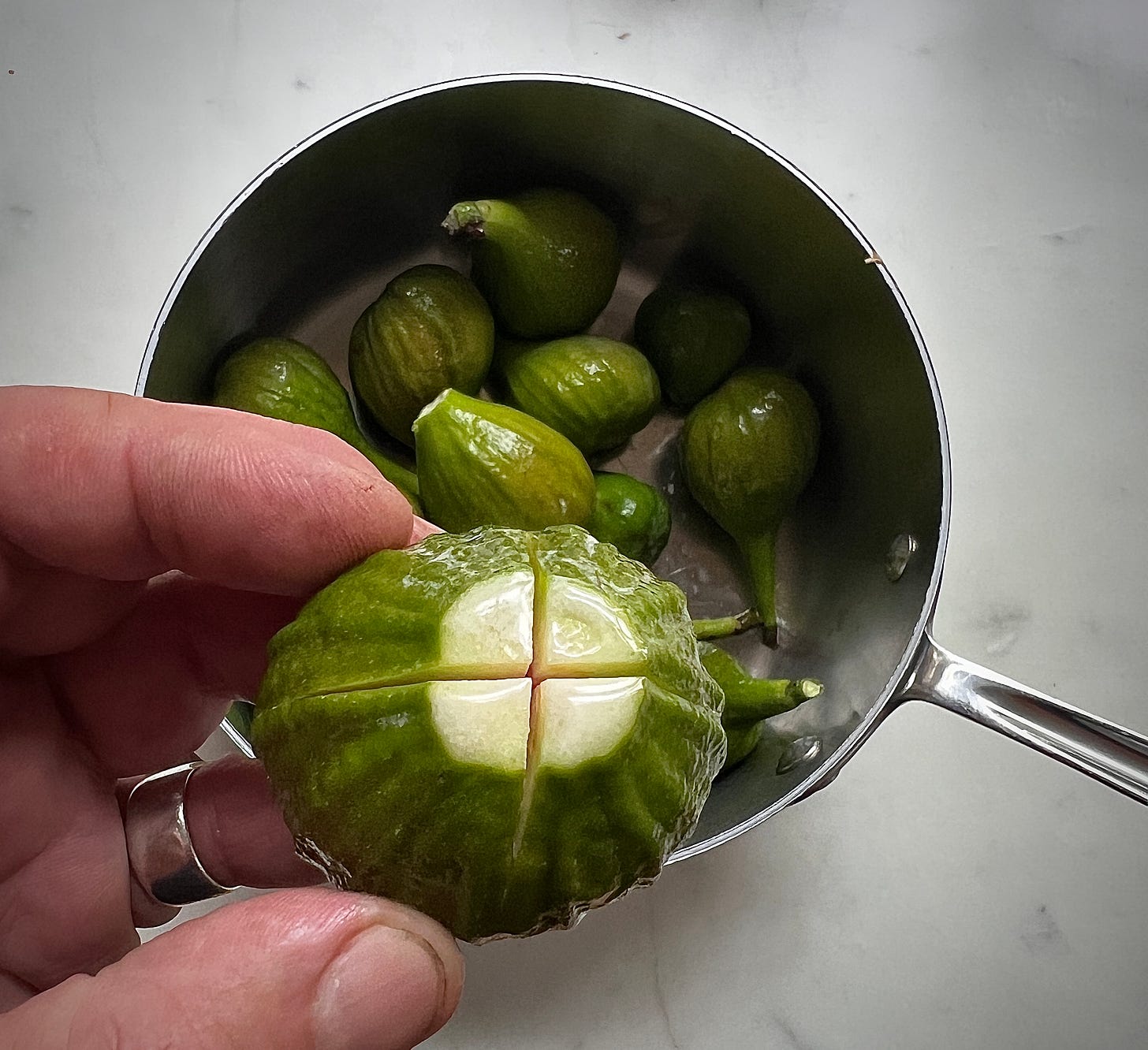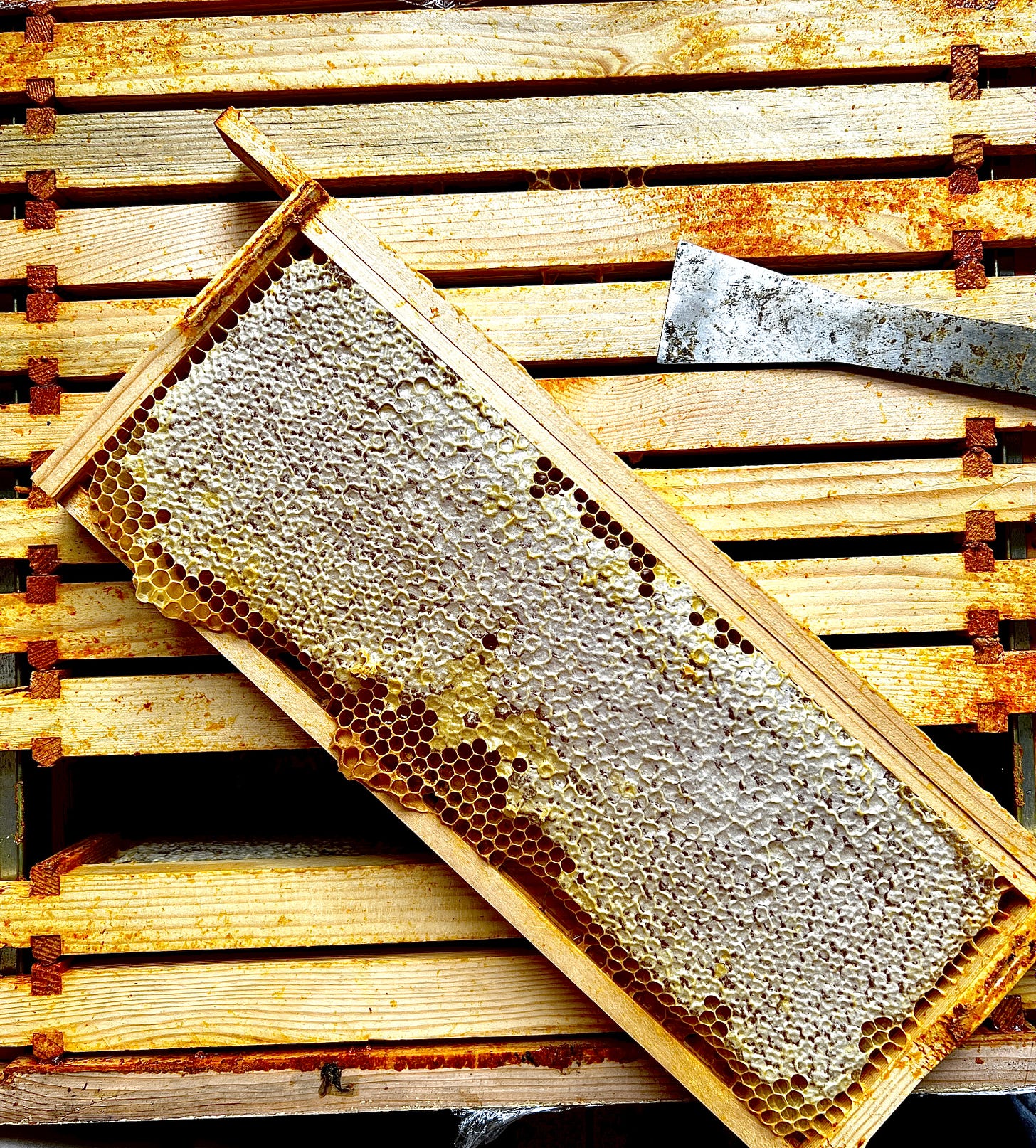I’ve been here on Substack for almost nine months. I’d attempted to write before, badly I think, though I hope that I’ve learned something here over the last seventy or so newsletters. Thank you for sticking with me.
Please let me say a heartfelt thank you to all those who have come here to read my words.
I feel very, very honoured.
This morning
It is raining today.
Heavy, continuous, thudding rain.
It’s not a day to be outside without a coat, but here I stand soaking wet, due to my idiosyncrasies, and my preoccupation with white T-shirts (two per day, sometimes three, stretched and folded in a very specific way, and if when I put one over my head, it’s the wrong way around, then, in theory, it’s a signal that the world will most likely end, imminently).
I’m standing under a tall leafy fig tree, rain dripping from my face, collecting green small unripe fruits. Bullet-hard, unmellowed green figs. They are the ones I really want. High up in the tree so I have to climb the slippery branches, hand outstretched to grip them and pull them free. There are ripe ones, yes. I’ll take some of those as well. Fat dark purple and red, ridged with stretched veins, bursting as they wait in the tree, some squashed on the stones beneath, sticking to my shoe, quite slippery in fact, wasps hiding from the torrential rain but unable to resist a visit to the pulverized red seeds, busily feeding on windfallen fruit. Perhaps it might be a cat that knocks them off their branches as they try to catch butterflies in the high limbs of this old fig tree. The scent sends me a little off balance when I walk under its branches, that heady green suggestion that French perfumiers make obscenely beautiful scents from.
The rain is unremitting today.
I am drenched, though I’ve collected what I need. A bowl full of hard, unripe green figs for preserving and the last of the ripe ones for something I haven’t decided yet. I take them back to the kitchen, remove their stems and cut small crosses into the necks of the unripe ones with a little wooden handled knife releasing the milky sap, mindful that it will irritate my skin, so I must avoid rubbing my eyes. I’ll let them steep in salty water overnight before cooking them with honey and cinnamon for an hour or so. They are very agreeable with cheese. I mentioned these in a previous newsletter when I shared how I make my fig leaf cordial.
I’ll share the recipe in the coming days.
I’ve walked through the gardens twice on various errands this morning, firstly before the rain started to collect ingredients, chard leaves, yellow courgettes and borlotti beans from the vegetable garden. Something for lunch.
I like to give some husks of fresh corn to the chickens as I walk back up the path. The cockerels jostle for position when they see me walking down the grass, I try not to slip as I dip my left ankle into a molehill. I call out to the chickens with my very best cockerel impression, John the gardener eyes me curiously as I squark and cluck my way down to their enclosure.
There are new ducks today. Rescued from a different life. They are happy with the weather, here in their new lake. A flotilla of Saxony and Indian runner ducks paddle happily around the duck house in the middle of the lake. Their new home. There are dozens of wildfowl here today. Chen, Canada geese, Egyptian, Muscovy, Mallards, Coots and Moorhens. They have meetings on the lawn, all squabbling amongst themselves about God knows what, before launching themselves back into the water, back on patrol. Sidney the duck who lost his mate seems pleased as he hurries around the new arrivals.
I go and check the honey that we took from the hives at the end of last week. The cedar frames smell sweet, woody and warm. They are firmly stuck together in a neat row in their wooden box, so using a hive tool to prize them apart, I can’t resist a peek, lifting out frame by frame inspecting the dedication that the bees have put into their work.
So beautiful.
We removed twelve heavy frames of capped honey last week and have our spinner ready, so tomorrow I will uncap the wax frames with a sharp knife, cut away the wax cappings and then place the wooden frames in the extractor to spin them free of their liquid. The bees are healthy, calm and busy preparing for winter. Both of our Queens are still laying, creating brood that will look after the hives over the colder months.
Truly a privilege to act as guardians to these little creatures.
Now to make lunch.
William







Wow those figs are stunning and the honey, stunning. And your words, stunning. Good morning from Brandenburg, Berlin, Germany 🌞
Ooh. I have a brand new baby fig tree with a few hard tiny baby figs on it ... they're not going to ripen, so maybe I'll make a tiny batch of this ...